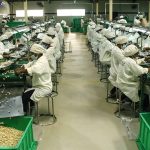Health
Adolescent TB Patients Suffer Fatal Neglect—Doctors
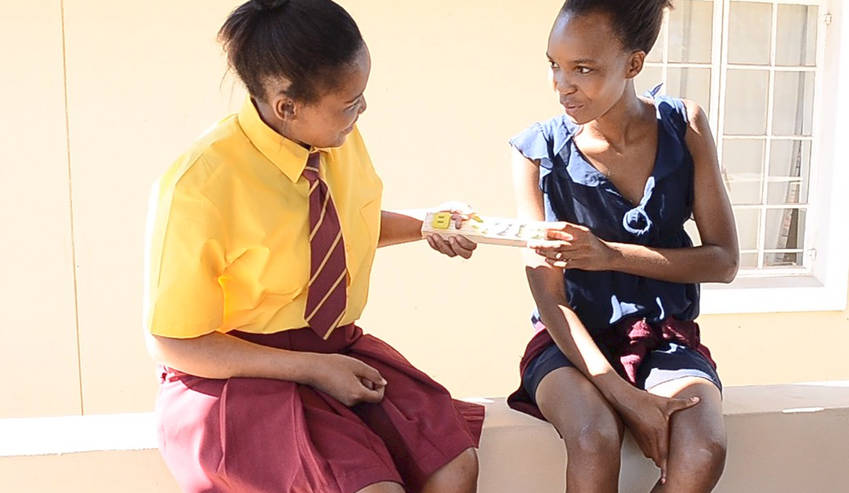
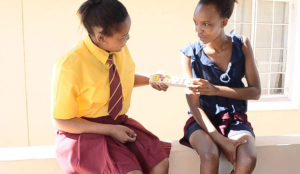
As a group of Khayelitsha schoolchildren living with drug-resistant tuberculosis (DR-TB) today unveiled an artwork commemorating their battles against the disease, the international humanitarian organisation, Doctors Without Borders (MSF), has warned that adolescents are being fatally neglected in the response to TB and DR-TB in South Africa, and calls on the Department of Basic Education (DBE) to expedite plans to implement school-based TB education and TB screening in collaboration with the Department of Health (DOH).
Medical staff who work in the MSF DR-TB projects in Khayelitsha, Western Cape, and King Cetshwayo District, KwaZulu-Natal, have spoken of critical gaps in the country’s response, including low TB literacy, too few TB screening opportunities, difficulties identifying adolescents who have been exposed to DR-TB and linking them to diagnosis, and limited access to better, more tolerable DR-TB treatments. Consequently this underdiagnosed population misses the opportunity to realise improved treatment outcomes.
According to Dr Jenny Hughes, MSF’s TB doctor in Khayelitsha, ‘an estimated 10 percent (of approximately 650’000 cases of DR-TB worldwide) occur among children and adolescents, and although young people respond well to treatment, thousands die from this disease each year, largely due to lack of access to improved diagnostic techniques and more tolerable treatment for young people. South Africa is no exception.’
The country’s new National Strategic Plan for HIV, TB and STIs (2017-2022) recommends providing health services such as TB screening in schools, although this much-needed activity is likely to stall until the Department of Basic Education finalizes and implements its 2015 Draft Policy on HIV, STIs and TB. MSF calls on the DBE to have this strategy approved without further delay.
After-hours strategies are also required for tracing adolescents who have been in contact with TB and DR-TB patients, and linking them to diagnostic and treatment services. Upward of 50% of all DR-TB cases in Khayelitsha are due to direct transmission of already drug-resistant strains. In South Africa, a strategic focus on tracing children under age 5 may have led to other vulnerable populations being neglected, including adolescents.
“Adolescents are usually at school during the daytime when health department officials do TB screening in households. Those who do get screened and referred to clinics for diagnosis find queues that keep them out of school for hours, so many turn away. So on the one hand we need wider screening for TB in schools, and on the other we need youth-friendly facilities with after-hours services,” says Xoliswa Harmans, a DR-TB counsellor at MSF Khayelitsha.
17 year old Sinethemba Kuse was diagnosed late, just days before Christmas in 2015, and later found that her TB strain was drug resistant (DR-TB).
“I didn’t know about TB. Nobody ever talked about it in school and I didn’t know that I could go to my local clinic to have a TB screening,” says Kuse, who is the subject of the portrait that will be unveiled on World TB Day.
Once diagnosed with DR-TB adolescents must face the same harsh treatment regimen that is used for adults, which includes a painful daily injection for months and side effects of the medications that can have catastrophic consequences for their growth and development.
“Studies conducted in the Western Cape show that up to 24% of children and adolescents on the injectable DR-TB agent that is currently in standard use develops hearing loss, which obviously impacts everything from schoolwork to social life. More tolerable treatments substituting an injectable agent with promising new medicines like delamanid are urgently required in order to make treatment more tolerable and also improve adolescent treatment outcomes,’ says Dr Hughes.
On World TB Day MSF will join a list of signatories on an open letter to delamanid manufacturer Otsuka, calling on the Japanese pharmaceutical company to urgently make this important new drug more widely available.
Kuse is one of the first South Africans under the age of 18 to have been initiated on delamanid, which is currently only available to approximately 1% of those in need of the drug. She is doing very well and her doctors expect she will be cured this year. Kuse says she agreed to sit for the portrait because she wants other youth to know that TB can be cured. Prints of the 2m tall artwork will be presented to select clinics and schools in Khayelitsha, along with Kuse’s story. The piece was created by local artist Claude Chandler, using word stamps made by Kuse and other adolescent DR-TB patients. The patients were asked to think of a word that expressed their experience of living with DR-TB. Kuse’s word was ‘hope’.
Health
Polaris Bank Sponsors Free Breast, Prostate Cancer Screenings
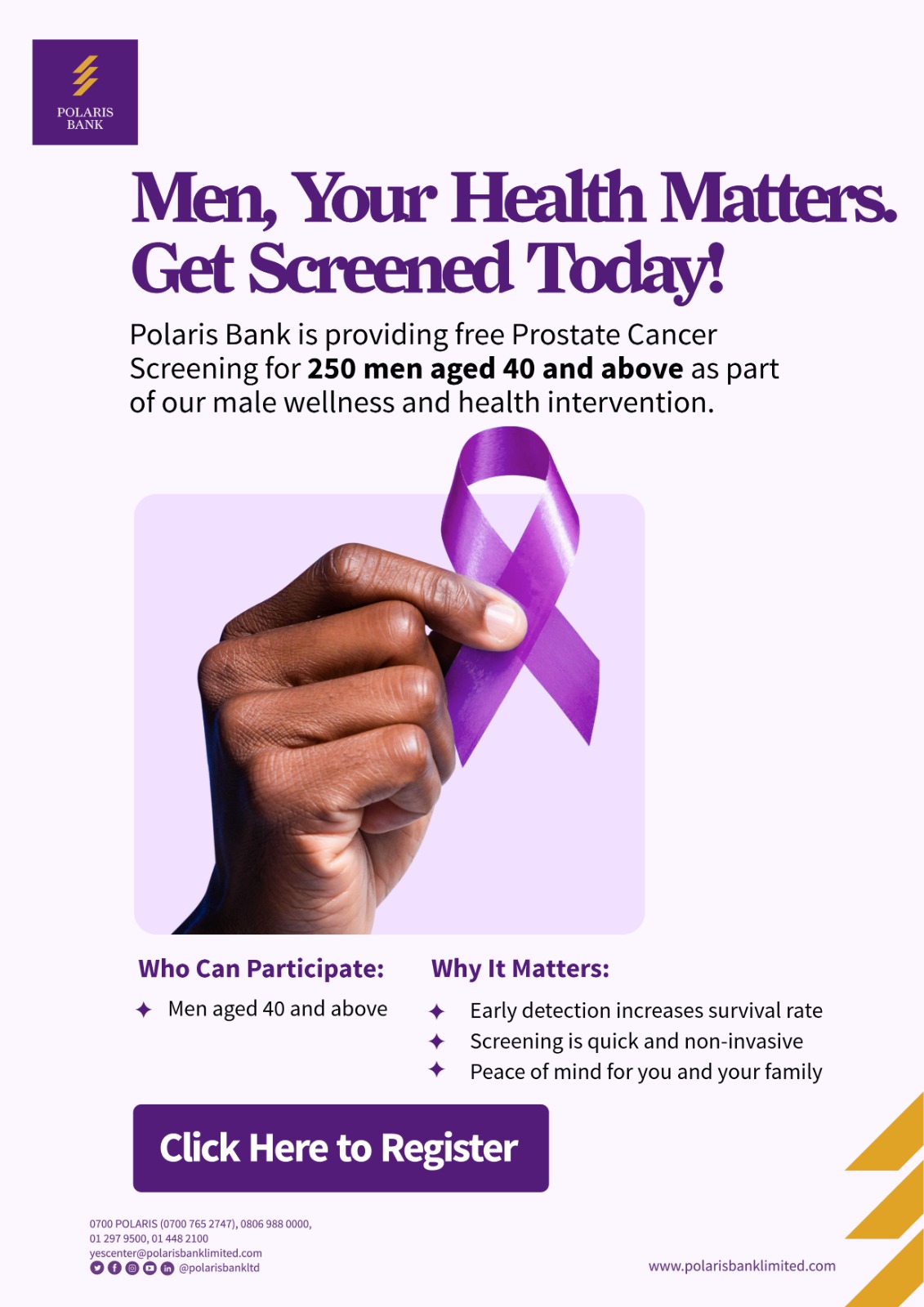
By Modupe Gbadeyanka
To commemorate World Cancer Day observed on Wednesday, February 4, 2026, Polaris Bank Limited is bankrolling free screenings for breast and prostate cancers across the country.
The financial institution partnered with a non-governmental organization (NGO) known as Care Organization and Public Enlightenment (COPE) for this initiative.
At least 100 women would be screened during the exercise, scheduled for Saturday, February 21, 2026, at the C.O.P.E Centre on 39B, Adeniyi Jones Avenue, Ikeja, Lagos, from 10:00 am to 2:00 pm.
The exercise will be conducted by trained health professionals and volunteers, ensuring participants receive both screening services and educational guidance on cancer prevention, self-examination, and follow-up care.
To participate in the free breast cancer screening programme, the applicants must be women, must be Polaris Bank account holders, and must have registered ahead of the day via bit.ly/BCS2026, with selection based on early and confirmed submissions.
Polaris Bank said the initiative was designed to promote awareness, screening, early detection, and preventive care, reinforcing its belief that access to health services is a critical foundation for individual and economic well-being.
The organization is already supporting an on-going free prostate cancer screening programme for 250 men aged 40 years and above across Nigeria.
The prostate cancer screening is being conducted at the Men’s Clinic, situated at 18, Commercial Avenue, Sabo, Yaba, Lagos, providing accessible, professional medical support for male participants seeking early detection and preventive care for prostate cancer.
Both initiatives (free breast and prostate cancer screenings) directly aligns with the United Nations Sustainable Development Goals, particularly SDG 3 (Good Health and Well-being) through improved access to preventive healthcare and early detection services, SDG 5 (Gender Equality) by prioritizing women’s health and empowerment, and SDG 17 (Partnerships for the Goals) through strategic collaboration with civil society organizations such as C.O.P.E to deliver community-centered impact.
Educational materials, community engagement sessions, and digital awareness campaigns will be deployed to reinforce key messages around early detection, lifestyle choices, and the importance of regular medical check-ups.
The Head of Brand Management and Corporate Communications for Polaris Bank, Mr Rasheed Bolarinwa, emphasised that early detection remains one of the most effective tools in the fight against cancer.
Health
NSIA Gets IFC’s Naira-financing to Scale Oncology, Diagnostic Services
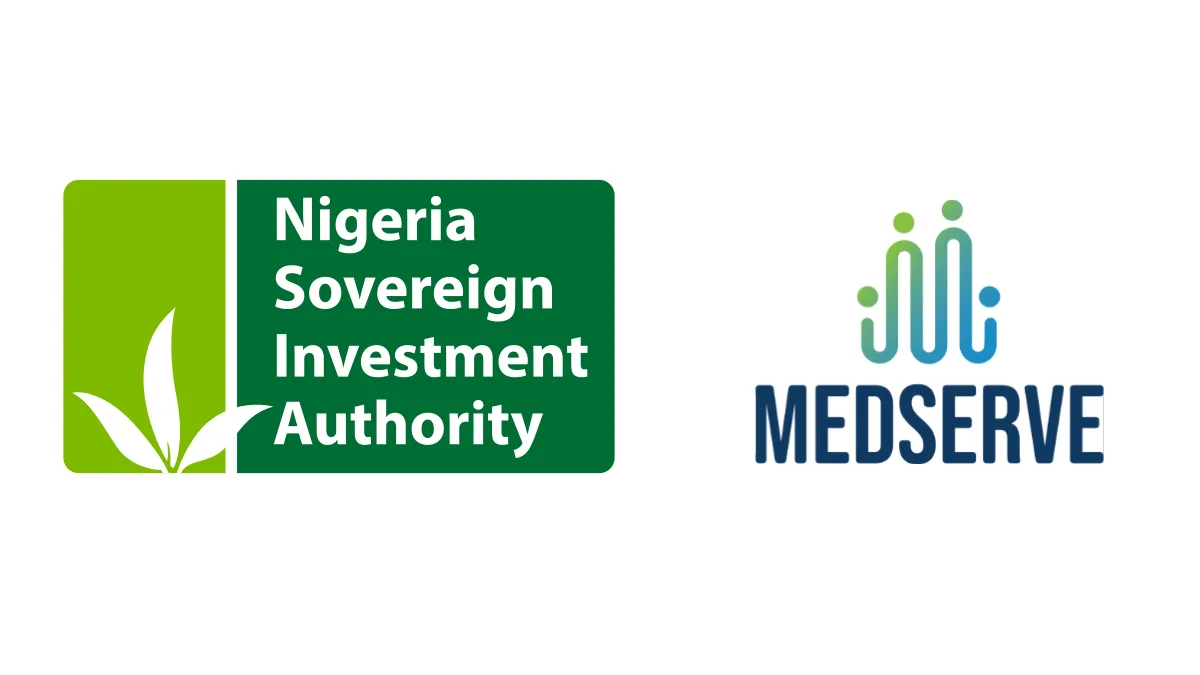
By Adedapo Adesanya
International Finance Corporation (IFC), a subsidiary of the World Bank, and the Nigeria Sovereign Investment Authority (NSIA) have partnered to provide Naira-denominated financing to NSIA Advanced Medical Services Limited (MedServe), a wholly owned healthcare subsidiary of the country’s wealth fund.
Supported by the International Development Association’s Private Sector Window Local Currency Facility, this financing enables MedServe to scale critical healthcare infrastructure while mitigating foreign exchange risks. IFC is a member of the World Bank Group.
The funds will support MedServe’s expansion program to establish diagnostic centers, radiotherapy-enabled cancer care facilities, and cardiac catheterisation laboratories across several Nigerian states.
These centres will feature advanced medical technologies, including CT and MRI imaging, digital pathology labs, linear accelerators, and cardiac catheterisation equipment, thereby enhancing specialised diagnostics and treatment.
MedServe provides sustainable service delivery with pricing that matches local income levels, helping ensure broader access to affordable oncology care for low-income patients.
The initiative will deliver over a dozen modern diagnostic and treatment centers across Nigeria, create 800 direct jobs, and train more than 500 healthcare professionals in oncology and cardiology specialties.
The total project size is $154.1 million, with IFC contributing roughly N14.2 billion ($24.5 million) in long-tenor local currency financing, marking IFC’s first healthcare investment in Nigeria using this structure.
This comes as Nigeria advances its aspirations for Universal Health Coverage. This partnership provides an opportunity to leverage private investment to complement government efforts to expand oncology care and diagnostic services.
IFC’s provision of long-tenor Naira financing addresses a significant market gap and unlocks institutional capital for healthcare infrastructure with strong development upside while MedServe’s co-location strategy with public hospitals maximises capital efficiency and strengthens the public-private ecosystem, establishing a replicable platform for future investment.
“This partnership with IFC represents a significant milestone in NSIA’s commitment to strengthening Nigeria’s healthcare ecosystem through sustainable, locally anchored investment solutions,” said Mr Aminu Umar-Sadiq, managing director & chief executive of NSIA.
He added, “By deploying long-tenor Naira financing, we are addressing critical infrastructure gaps while reducing foreign exchange risk and ensuring that quality diagnostic and cancer care services are accessible to underserved communities. MedServe’s expansion underscores our belief that commercially viable healthcare investments can deliver strong development impact while supporting national health priorities.”
“This ambition is consistent with our broader vision for Africa, one where resilient health systems and inclusive growth reinforce each other to deliver long-term impact across the continent,” said Mr Ethiopis Tafara, IFC Vice President for Africa.
Health
Lagos Steps up Mandatory Health Insurance Drive
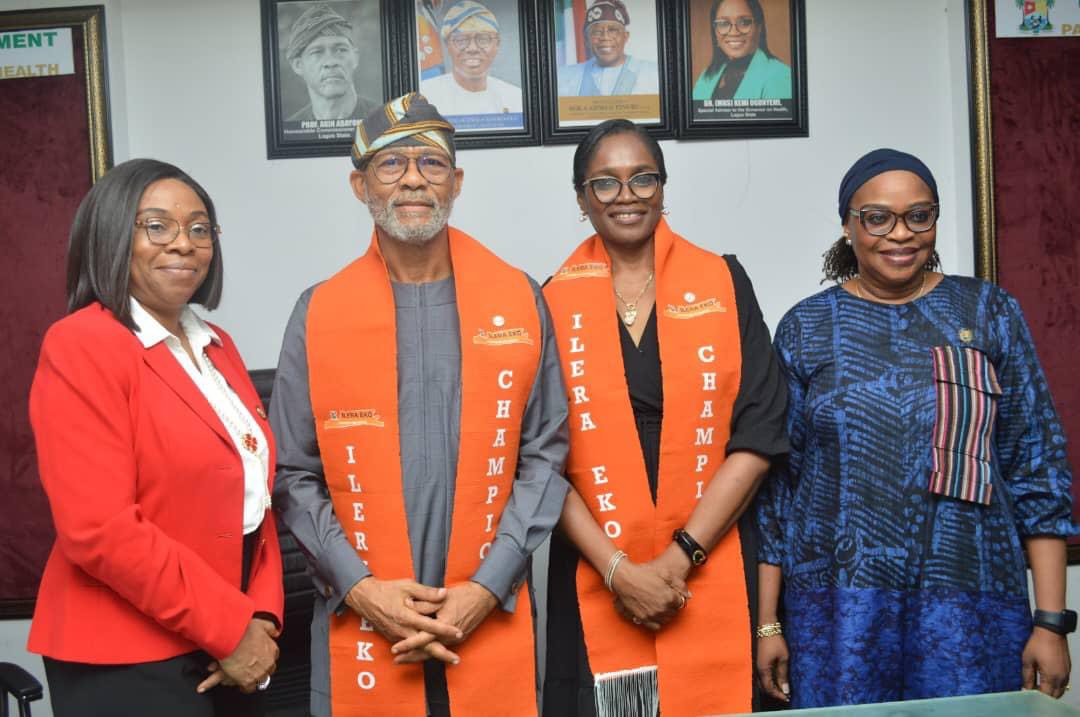
By Modupe Gbadeyanka
Efforts to entrench mandatory health insurance through the Ilera Eko Social Health Insurance Scheme in Lagos State have been stepped by the state government.
This was done with the formal investiture of the Commissioner for Health, Professor Akin Abayomi, and the Special Adviser to the Governor on Health, Mrs Kemi Ogunyemi, as Enforcement Leads of the Lagos State Health Scheme Executive Order and ILERA EKO Champions.
The Commissioner described the recognition as both symbolic and strategic, noting that Lagos is deliberately shifting residents away from out-of-pocket healthcare spending to insurance-based financing.
“We have been battling with how to increase enrolment in ILERA EKO and change the culture of cash payment for healthcare. Insurance is a social safety net, and this mindset shift is non-negotiable,” he said.
He recalled that Lagos became the first state to domesticate the 2022 National Health Insurance Authority (NHIA) Act through an Executive Order issued in July 2024, making health insurance mandatory. He stressed that the decision reflected the Governor’s strong commitment to healthcare financing reform, adding, “When Mr. Governor personally edits and re-edits a document, it shows how critical that issue is to the future of Lagosians.”
Mr Abayomi also warned against stigmatisation of insured patients, describing negative attitudes towards Ilera Eko enrolees as a major barrier to uptake. “If someone presents an Ilera Eko card and is treated as inferior, uptake will suffer. That must stop,” he said, pledging to prioritise insurance compliance during facility inspections. “The key question I will keep asking is: ‘Where is the Ilera Eko?’”
In her remarks, Mrs Ogunyemi, said the enforcement role goes beyond a title, stressing that the health insurance scheme is now law.
“This is about Universal Health Coverage and equitable access to quality healthcare for everyone in Lagos State,” she said, noting that ILERA EKO aligns with the state’s THEMES Plus Agenda.
She commended the Lagos State Health Management Agency (LASHMA) for aggressive sensitisation efforts across the state, saying constant visibility was necessary to address persistent gaps in public knowledge. “People are still asking, ‘What is Ilera Eko?’ ‘Where do I enrol?’ Those questions tell us the work must continue,” she said.
She urged all directors and health officials to mainstream Ilera Eko promotion in every programme and engagement, emphasising that responsibility for health insurance advocacy does not rest with LASHMA alone. “When people come with medical bills, the first question should be: are you insured?” she said, adding that early enrolment remains critical as premiums rise over time.
Earlier, the Permanent Secretary of LASHMA, Ms Emmanuella Zamba, said the investiture marked a critical step in positioning leadership to drive enforcement of the Executive Order across the public service.
“What we are undertaking is pioneering in Nigeria. All eyes are on Lagos as we demonstrate how mandatory health insurance can work,” she said.
Ms Zamba disclosed that enforcement nominees across Ministries, Departments and Agencies have been trained, with a structure in place to ensure compliance beyond the health sector.
According to her, “This initiative cuts across the entire public service, particularly public-facing MDAs, in line with the provisions of the Executive Order.”
She explained that the formal designation of the Commissioner and the Special Adviser as Enforcement Leaders was meant to strengthen compliance, alongside the Head of Service, while also recognising their consistent advocacy for universal health coverage. “This decoration is to amplify their roles and appreciate the leadership they have shown,” she said.
-

 Feature/OPED6 years ago
Feature/OPED6 years agoDavos was Different this year
-
Travel/Tourism9 years ago
Lagos Seals Western Lodge Hotel In Ikorodu
-

 Showbiz3 years ago
Showbiz3 years agoEstranged Lover Releases Videos of Empress Njamah Bathing
-

 Banking8 years ago
Banking8 years agoSort Codes of GTBank Branches in Nigeria
-

 Economy3 years ago
Economy3 years agoSubsidy Removal: CNG at N130 Per Litre Cheaper Than Petrol—IPMAN
-

 Banking3 years ago
Banking3 years agoSort Codes of UBA Branches in Nigeria
-

 Banking3 years ago
Banking3 years agoFirst Bank Announces Planned Downtime
-

 Sports3 years ago
Sports3 years agoHighest Paid Nigerian Footballer – How Much Do Nigerian Footballers Earn









